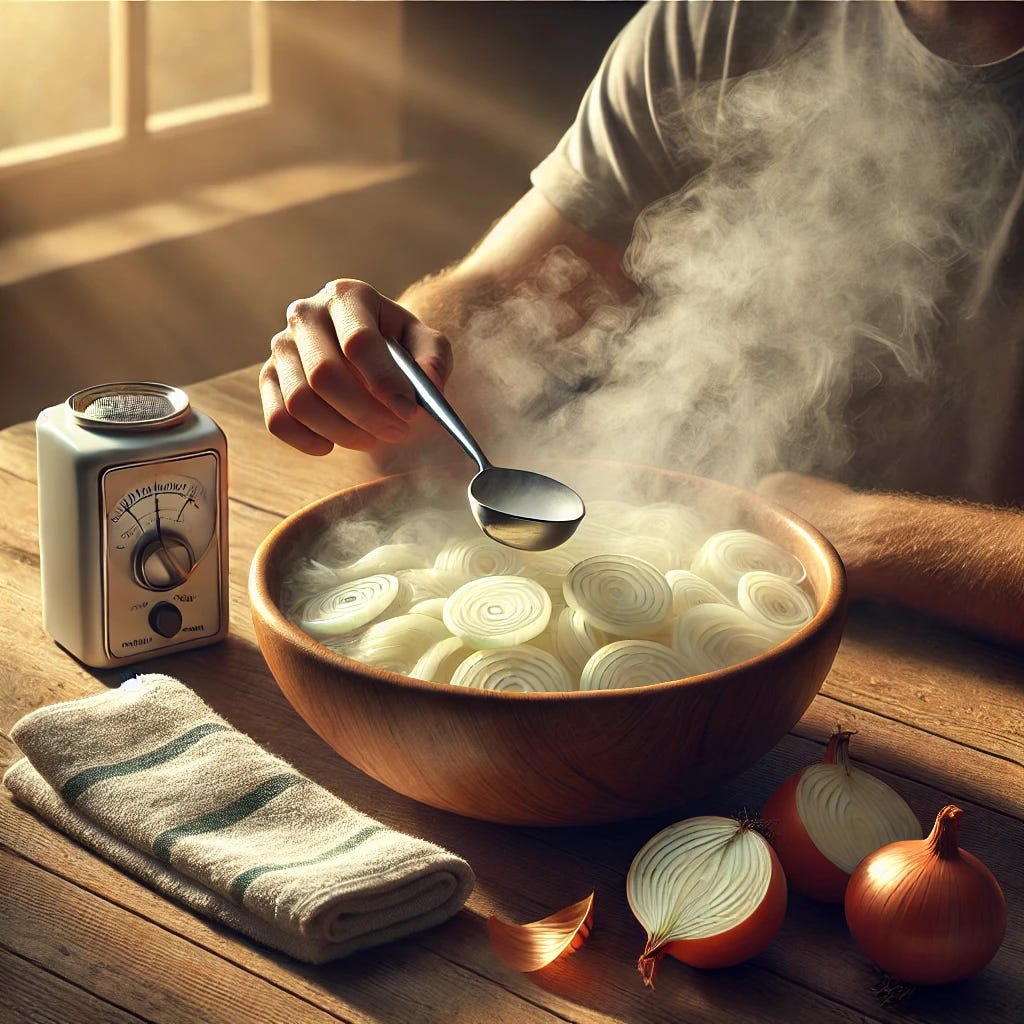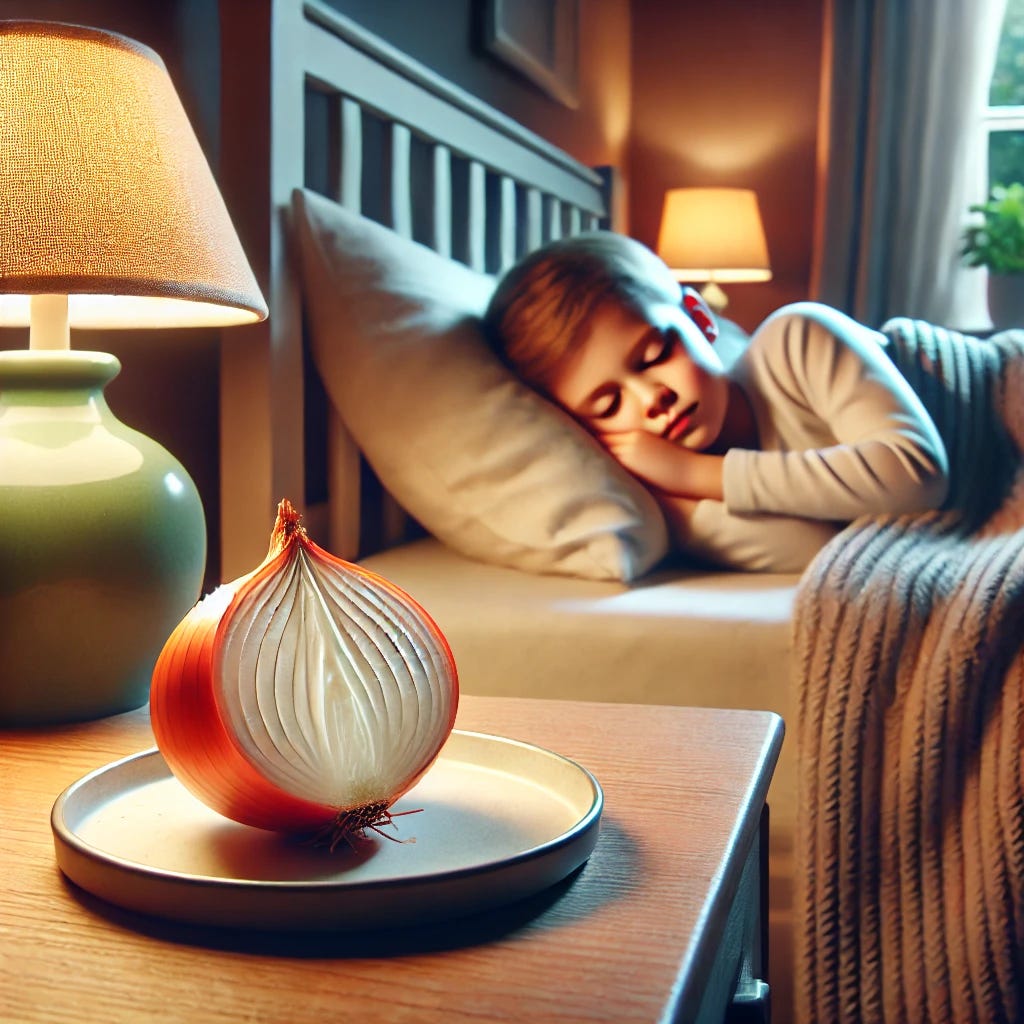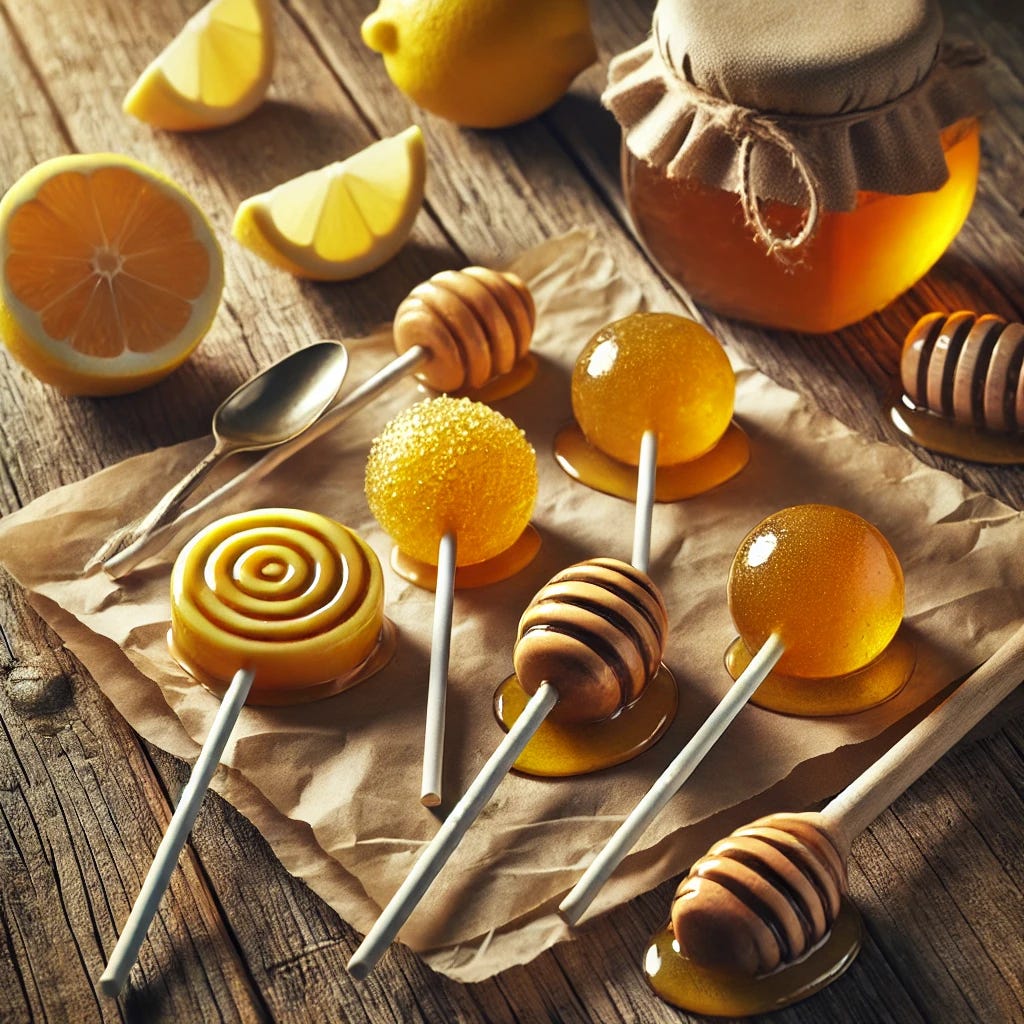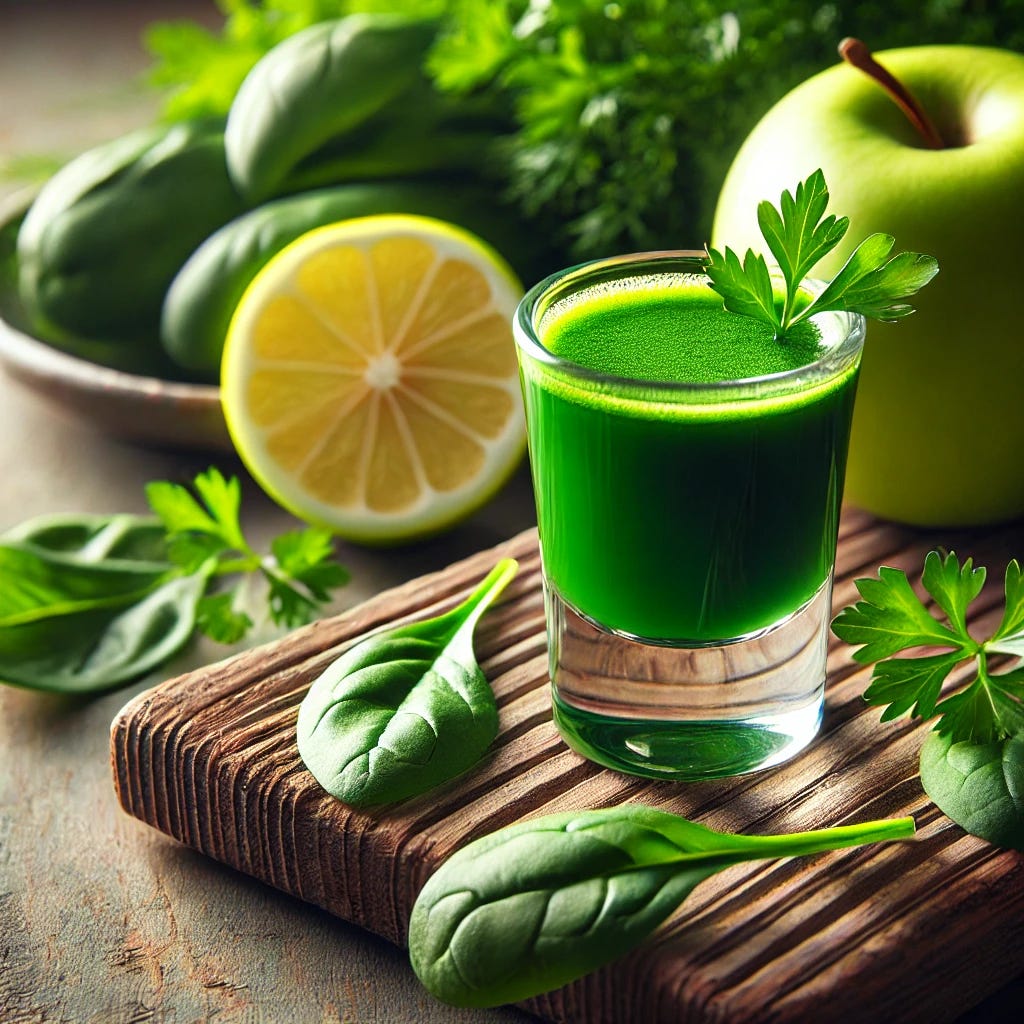Short Dive: The Case Against Cough Syrups
Exploring the risks of OTC cough syrups and science-backed safer alternatives
I don’t know what’s in November air but as soon as November hits we (me and my family) get sick. Same happened this year, I along with the little ones spent the first week of November sick in bed and honestly at first when the remedies I tried didn’t work as quickly as I hoped they would I just wanted to get some cough syrup in my kiddos and be done with it - if you think being a stay at home mom is hard work on a regular day image having to stay at home with two kids under eight when they are sick and cranky. I, however, persevered in using herbal remedies when I thought of how harmful cough syrups are especially for the young ones, and I am glad that I did as although herbal remedies are not as quick acting as cough syrups that’s because they actually work on making you better/treating the cause of illness instead of merely suppressing the symptoms of the illness as cough syrups does. Bellow are the herbal remedies that I used to cure my family and I of our colds. I am still using some of these remedies as they help make your immune system stronger hence preventing one from getting sick easily.
The Hidden Dangers of Over-the-Counter Cough Syrups
1. Hidden Ingredients
Many cough syrups contain ingredients like dextromethorphan and codeine, which can cause side effects such as dizziness, nausea, or even dependency when misused. Some also have high sugar content or artificial dyes, which aren’t great for your overall health.
One study shows that annually, an estimated 7091 patients aged <12 years were treated in emergency departments for adverse drug events from cough and cold medications, accounting for 5.7% of emergency department visits for all medications in this age group. Most visits were for children aged 2 to 5 years (64%). Unsupervised ingestions accounted for 66% of estimated emergency department visits, which was significantly higher than unsupervised ingestions of other medications (47%), and most of these ingestions involved children aged 2 to 5 years (77%).
The Muslim Mom's Corner is a reader-supported publication. To receive new posts and support my work, consider becoming a free or paid subscriber.
The side effects of cough syrups especially in children are not limited to only these. lets discuss more of these side effects in detail:
1. Drowsiness
Antihistamines and dextromethorphan are commonly found in OTC children’s medications. Both can cause drowsiness.
Dextromethorphan is a cough suppressant. It’s usually sold in OTC products for a nagging, dry cough from a cold or the flu. Common OTC products containing dextromethorphan include Delsym and Robitussin 12-Hour Cough Relief.
Antihistamines treat allergies and cold symptoms, like sneezing or runny nose. Older antihistamines, called first-generation antihistamines, typically cause the most drowsiness.
2. Agitation
Agitation is a side effect of some medications — especially for children. You may notice your child acting in an aggressive, excited, or stubborn manner that isn’t usual for them.
As mentioned, first-generation antihistamines usually cause sedation or drowsiness. But in some children, they can have the opposite effect — agitation and hyperactivity. Agitation could also be a sign your child’s dose is too high.
Decongestants can also cause signs of agitation in children. Pseudoephedrine and phenylephrine can cause nervousness, trouble sleeping, or a fast heartbeat. And children in particular can be overstimulated by these medications.
3. Constipation
Constipation is a possible side effect of dextromethorphan and antihistamines. These medications can slow down the way food moves through your child’s intestines. Slower movement may lead to constipation.
4. Nausea
Dextromethorphan and guaifenesin (Robitussin, Mucinex) can both cause nausea.
As mentioned earlier, dextromethorphan is a cough suppressant used for dry cough. Guaifenison helps thin mucus. And they are often found in the same medication, like Robitussin DM.
5. Fast heartbeat
Children taking antihistamines and decongestants may experience changes in their heart rate. Some children may not notice their heart is racing. However, others could feel lightheaded, faint, or have problems catching their breath.
Children who also take stimulants for attention-deficit hyperactivity disorder (ADHD) may be at greater risk for this side effect.
6. Hallucinations
Pseudoephedrine treats nasal congestion. It has the rare side effects of psychosis and hallucinations in children.
Symptoms of this include:
Seeing and hearing things that aren’t there
Extreme anxiety
Excessive talking
Extreme agitation
7. Seizures
Some OTC medications increase the risk of seizures. Studies show antihistamines, decongestants, and dextromethorphan all have this risk.
8. Serotonin syndrome
Serotonin syndrome is a build up of too much serotonin in the body — and it can be dangerous. The good news is, it’s usually very rare.
Dextromethorphan is one medication that increases serotonin levels in the body. If your child is taking another medication that increases serotonin, like an antidepressant, adding dextromethorphan could cause levels to go too high.
Symptoms of serotonin syndrome include:
Rapid heart rate
Muscle stiffness
Spasms
Confusion
Nausea and vomiting
2. Understanding Your Body’s Natural Healing Process
Coughing is your body’s way of clearing irritants and mucus from your airways. Suppressing a cough may provide temporary relief, but it doesn’t address the underlying cause of the illness.
According to Dr. Pamela Phillips (paediatrician) "Cough is the body's way of keeping bacteria out of the lungs, so it's not a good idea to suppress a cough."
"We don't generally recommend over-the-counter cough medications for children because side effects such as sedation, irritability, and behavioral changes tend to outweigh any potential benefits."
Dr. Pamela Phillips
3. Risks for Kids
For children under six, cough syrups are generally not recommended by health experts because they can have adverse effects and little proven benefit. In fact, the FDA warns against giving over-the-counter cough syrups to young children.
According to the FDA children under 2 years of age should not be given any kind of cough and cold product that contains a decongestant or antihistamine because serious and possibly life-threatening side effects could occur. Reported side effects of these products included convulsions, rapid heart rates and death. What about older children? When giving cough and cold medicine to children over 2 years of age, parents and caregivers should use caution.
A meeting about the safety and effectiveness of cough and cold drug product use in children by the U.S. Food and Drug Administration in 2007 revealed that there were many reports of harm, and even death, in children who used these products. During 2004-2005, an estimated 1,519 children less than 2 years of age were treated in U.S. emergency departments for adverse events, including overdoses, associated with cough and cold medications. In light of this manufacturers voluntarily removed over-the-counter (OTC) infant cough and cold products intended for children under 2 years of age due to these safety concerns.
From all of this it is clear that when we give our children cough syrups we are causing them more harm than good as the side effects of cough syrups can be severe and even deadly in rare cases. So why take the risk especially given that there are more effective ways of treating colds available.
Natural Remedies for Coughs and Colds
Onions Your Natural Ally Against Cold and Flu
The humble onion isn’t just a versatile kitchen staple—it’s also packed with healing properties that make it an excellent natural remedy for colds and flu. From antimicrobial effects to natural expectorant qualities, onions have been used for centuries as a simple, effective home remedy.
Why Onions Are Excellent for Cold and Flu Relief
Antimicrobial Properties
Onions contain sulfur-based compounds like allicin and quercetin, which have powerful antibacterial and antiviral effects, helping your body fight off infections.
Expectorant Qualities
Onions loosen mucus in the respiratory system, making it easier to expel and clear your airways.Anti-inflammatory Effects
The antioxidants in onions, such as quercetin, help reduce inflammation in the throat and nasal passages, relieving congestion and discomfort.Natural Antiseptic
Onions have natural antiseptic properties that combat germs and bacteria both internally and externally.Increased Mucus Production
Onions stimulate mucus production, which helps flush out toxins, bacteria, and viruses from your respiratory system.Detoxifying Through Skin
Onions can draw out bacteria and toxins through the skin when applied externally, such as in the "onion-in-socks" remedy.
How to Use Onions for Coughs and Flu Relief
1. Onion Honey Syrup
Combine onions’ antimicrobial properties with honey’s soothing effects:
How to make it:
Slice an onion thinly and place it in a jar.
Cover each layer with honey and let it sit for several hours or overnight to form a syrup.
Take a teaspoon every few hours to soothe a sore throat and reduce coughing.
2. Onion Steam Inhalation
The vapors from onion steam can help clear congestion and kill germs in your respiratory tract.
How to do it:
Boil a sliced onion in water for 10 minutes.
Remove from heat and lean over the pot with a towel draped over your head.
Inhale the steam for 5-10 minutes to loosen mucus and relieve sinus pressure.
3. Onion Poultice for Chest Congestion
Reduce inflammation and promote mucus drainage with this external remedy:
How to make it:
Sauté chopped onions until soft and let them cool slightly.
Wrap the onions in a thin cloth or towel and place the poultice on your chest.
Leave it on for 15-20 minutes while resting.
4. Onion in Socks Remedy
This old-fashioned remedy is said to draw out toxins and bacteria through the feet while you sleep:
How to do it:
Slice a raw onion into thin rings.
Place the onion slices on the soles of your feet.
Put on clean, snug socks to keep the onions in place.
Leave the socks on overnight and remove them in the morning.
Why it works: The sulfur compounds in onions may help stimulate circulation, draw out toxins, and reduce fever.
5. Raw Onion at Bedside
Place a halved onion near your bed while you sleep to help clear the air and reduce nasal congestion. The strong vapors work as a natural decongestant and antimicrobial.
Immune-Boosting Recipes with Onions
Onion Soup
Why it works: A warm bowl of soup soothes the throat and provides anti-inflammatory benefits.
How to make it:
Sauté onions and garlic in olive oil.
Add chicken or vegetable broth and simmer until the onions are soft.
Season with thyme, oregano, or black pepper for extra healing properties.
Onion Tea
Why it works: Quick and easy, onion tea is great for boosting immunity.
How to make it:
Boil a few slices of onion in water for 10 minutes.
Strain and add honey or lemon for flavor.
Sip warm to reduce throat irritation and boost mucus production.
The Muslim Mom's Corner is a reader-supported publication. To receive new posts and support my work, consider becoming a free or paid subscriber.
Pineapple Cough Remedy: A Delicious and Natural Alternative
Did you know that pineapple can help soothe coughs and support your immune system? This tropical fruit contains bromelain, a powerful enzyme with anti-inflammatory and mucus-thinning properties, making it a natural remedy for respiratory issues. 🍍✨
Why Pineapple Works for Coughs
Rich in Bromelain
Bromelain helps reduce mucus and soothe inflammation in the throat and respiratory system.Vitamin C Boost
Pineapple is packed with vitamin C, which strengthens your immune system and speeds up recovery.Natural Expectorant
The juice from pineapples helps loosen phlegm, making it easier to expel and relieving chest congestion.
How to Use Pineapple for Cough Relief
1. Pineapple Cough Syrup
How to make it:
Blend 1 cup of fresh pineapple juice with 1 tablespoon of honey, a pinch of cayenne pepper, and a squeeze of lemon juice.
Stir well and drink 2-3 times a day for relief.
2. Pineapple and Ginger Smoothie
How to make it:
Blend 1 cup of pineapple chunks, 1-inch piece of fresh ginger, and 1/2 cup of water or coconut water.
Add honey for sweetness and drink fresh.
3. Warm Pineapple Tea
How to make it:
Heat fresh pineapple juice in a pot until warm (don’t boil).
Add a pinch of turmeric and a teaspoon of honey for added benefits.
Sip slowly to soothe your throat.
The Amazing Benefits of Honey for Coughs and Immunity
Honey has been a trusted natural remedy for centuries—and for good reason. Its soothing properties make it a go-to solution for coughs, sore throats, and boosting overall immunity. 🍯✨
Why Honey is Excellent for Cough Relief
Natural Cough Suppressant
Honey coats the throat, reducing irritation and suppressing cough reflexes more effectively than many over-the-counter syrups.Antibacterial and Antiviral Properties
Rich in hydrogen peroxide and other compounds, honey helps fight infections caused by bacteria and viruses.Soothes Inflammation
Honey’s anti-inflammatory properties help reduce swelling in the throat, making it easier to breathe and swallow.Immune System Support
Packed with antioxidants, honey boosts your body’s defenses, making it easier to fight off colds and flu.Improves Sleep
By reducing nighttime coughing, honey helps you get the restful sleep you need for recovery.
How to Use Honey for Cough Relief
1. Honey and Lemon Elixir
How to make it: Mix 1 tablespoon of honey with the juice of half a lemon in warm water. Sip slowly to soothe a sore throat.
2. Honey in Warm Milk
How to make it: Stir 1 teaspoon of honey into a glass of warm milk. This not only soothes your throat but also promotes relaxation and better sleep.
3. Honey and Ginger Tea
How to make it: Brew fresh ginger slices in hot water for 10 minutes, then add a teaspoon of honey. This combination fights inflammation and relieves coughing.
4. Honey Lollipops for Kids
Ingredients:
1 cup of honey
Optional: Lemon juice, ginger extract, or cinnamon for added benefits
Lollipop sticks or toothpicks
Instructions:
Heat the Honey:
Pour honey into a saucepan and heat it on low-medium heat. Stir occasionally to prevent burning. Use a candy thermometer to monitor the temperature. When the honey reaches 300°F (hard crack stage), remove it from heat.Add Flavor (Optional):
Mix in a few drops of lemon juice, ginger extract, or a pinch of cinnamon for extra health benefits and flavor.Mold the Lollipops:
Quickly pour the hot honey into silicone lollipop molds or onto a parchment-lined baking sheet in small circles. Insert a lollipop stick into each one.Cool and Harden:
Let the lollipops cool completely until they harden. Store them in an airtight container with wax paper between layers to prevent sticking.Enjoy:
Give one to your child whenever they need relief from a cough or sore throat.
Tips for Success
Always supervise children while they’re using lollipops to prevent choking.
Avoid giving honey to children under 1 year old due to the risk of botulism.
Customize the size of the lollipops to suit your child’s needs.
Black Pepper Lozenges (Homemade Cough and Throat Soothers)
Black pepper is a powerful natural remedy known for its antimicrobial properties, ability to improve circulation, and effectiveness in breaking up mucus. Paired with honey, it makes an excellent base for soothing throat lozenges. Here’s how you can make your own black pepper “stepsils” at home. 🌿✨
Why Black Pepper Works for Coughs and Sore Throats
Natural Decongestant:
Black pepper helps to loosen mucus, making it easier to expel and clear your airways.Antimicrobial Properties:
Its compounds can help fight bacteria and viruses that cause throat infections.Improves Circulation:
Black pepper stimulates circulation, which can enhance your body’s healing process.Soothes Irritation:
Paired with honey, it coats the throat and reduces irritation.
Black Pepper Lozenges Recipe
Ingredients:
1/2 cup honey
1/2 teaspoon ground black pepper
1/2 teaspoon powdered ginger (optional for added benefits)
1/4 teaspoon cinnamon powder (optional for flavor)
Wax paper or silicone molds
Instructions:
Prepare Ingredients:
Measure out your honey, black pepper, and other optional ingredients.
Keep silicone molds or a parchment-lined baking tray ready for shaping the lozenges.
Heat the Mixture:
In a small saucepan, heat the honey on low-medium heat while stirring constantly.
Use a candy thermometer to monitor the temperature and let the honey reach 300°F (hard crack stage).
Add Black Pepper and Spices:
Remove the saucepan from heat and quickly stir in the black pepper, ginger, and cinnamon. Mix well to evenly distribute the spices.
Form the Lozenges:
Carefully pour small drops of the mixture into silicone molds or onto the parchment paper to form lozenge shapes.
Work quickly, as the mixture will harden fast.
Cool and Set:
Allow the lozenges to cool completely until they harden. This should take about 30 minutes.
Dust with Powdered Sugar (Optional):
To prevent sticking, you can lightly dust the lozenges with powdered sugar or cornstarch.
Store:
Transfer the lozenges to an airtight container with wax paper between layers. Store in a cool, dry place.
How to Use
Dissolve one lozenge in your mouth whenever you experience a sore throat or persistent cough.
Do not exceed 6-8 lozenges per day, especially for children.
Tips for Success
Always monitor the honey’s temperature closely; overheating can alter its benefits.
Adjust the amount of black pepper if you find the flavor too strong for your taste.
Use a small spoon to shape the lozenges if you don’t have silicone molds.
How Natural Remedies Support Your Immune System
Immunity Booster Shots
Boost your immune system naturally with these powerful and nutrient-packed shots. These quick-to-make recipes use simple ingredients and are designed to fight off colds, flu, and keep your body strong year-round. 🌿✨
1. Ginger Lemon Shot
Why it works: Ginger is anti-inflammatory, while lemon provides a dose of vitamin C for immunity.
Ingredients:
1-inch piece of fresh ginger
Juice of 1 lemon
1 teaspoon honey
A pinch of cayenne pepper (optional)
Instructions:
Blend or juice the ginger.
Mix with lemon juice, honey, and cayenne.
Take one shot in the morning.
2. Turmeric Ginger Shot
Why it works: Turmeric is a powerful anti-inflammatory, and ginger aids digestion and fights colds.
Ingredients:
1-inch piece of fresh ginger
1/2 teaspoon turmeric powder or fresh turmeric
Juice of 1 orange
A pinch of black pepper (enhances turmeric absorption)
Instructions:
Blend the ginger, turmeric, and orange juice.
Add black pepper and strain if desired.
Take one shot daily for a week.
3. Green Immunity Shot
Why it works: Spinach and parsley are rich in antioxidants, while green apple adds a sweet dose of vitamin C.
Ingredients:
A handful of spinach
A handful of parsley
1/2 green apple
Juice of 1/2 lemon
Instructions:
Juice or blend all the ingredients.
Strain if needed and drink fresh.
4. Pineapple Turmeric Shot
Why it works: Pineapple contains bromelain to reduce mucus, and turmeric fights inflammation.
Ingredients:
1/4 cup pineapple chunks
1/2 teaspoon turmeric powder
Juice of 1 lime
A dash of black pepper
Instructions:
Blend the pineapple, turmeric, lime juice, and black pepper.
Take one shot during cold and flu season.
5. Garlic Honey Shot
Why it works: Garlic is a natural antimicrobial, and honey soothes and supports the immune system.
Ingredients:
1 clove garlic (minced or crushed)
1 tablespoon honey
Juice of 1/2 lemon
Instructions:
Mix garlic and honey together.
Add lemon juice and stir.
Take one shot when you feel a cold coming on.
6. Vitamin C Citrus Shot
Why it works: A blend of citrus fruits gives a mega-dose of vitamin C to ward off colds.
Ingredients:
Juice of 1 orange
Juice of 1/2 grapefruit
Juice of 1/2 lemon
A pinch of ginger powder
Instructions:
Mix all the juices together.
Add ginger powder for an extra kick.
Drink fresh for an instant immunity boost.
7. Apple Cider Vinegar Shot
Why it works: Apple cider vinegar balances your gut health, which is closely tied to immunity.
Ingredients:
1 tablespoon apple cider vinegar
1/2 teaspoon honey
1/2 teaspoon fresh ginger juice
1/4 cup warm water
Instructions:
Mix all ingredients until well combined.
Take one shot before meals for a health boost.
8. Beetroot Immunity Shot
Why it works: Beets improve blood flow and are loaded with antioxidants to fight off illness.
Ingredients:
1/4 cup beetroot juice
Juice of 1/2 lemon
A pinch of turmeric powder
Instructions:
Blend beetroot and lemon juice with turmeric.
Strain if needed and drink fresh.
Tips for Success:
Take these shots first thing in the morning for maximum absorption.
Store leftover shots in the fridge for up to 24 hours.
Adjust sweetness with honey or add a little water if the shots are too strong.
Additional Natural Remedies to Boost Immunity and Soothe Colds and Coughs
Herbal Teas for Respiratory Relief
Here’s an expanded list of natural remedies to strengthen your immune system and combat cold and flu symptoms. These remedies are easy to make, effective, and full of nutrients that support your body’s natural defenses. 🌿✨
1. Cinnamon Honey Tea
Why it works: Cinnamon is antimicrobial, and honey soothes a sore throat and cough.
Ingredients:
1 cup hot water
1 teaspoon cinnamon powder
1 teaspoon honey
Instructions:
Mix cinnamon in hot water and let steep for 5 minutes.
Add honey, stir, and sip while warm.
2. Elderberry Syrup
Why it works: Elderberries are packed with antioxidants and have been shown to reduce the severity and duration of colds.
Ingredients:
1 cup fresh or dried elderberries
3 cups water
1 tablespoon honey
Instructions:
Simmer elderberries in water for 30 minutes.
Strain and mix with honey.
Take 1-2 tablespoons daily.
3. Thyme Steam Inhalation
Why it works: Thyme is an antimicrobial herb that helps clear sinuses and alleviate respiratory issues.
Ingredients:
1 tablespoon dried thyme
4 cups boiling water
Instructions:
Add thyme to a bowl of boiling water.
Lean over with a towel covering your head and inhale deeply for 10 minutes.
4. Garlic Lemon Tea
Why it works: Garlic is a natural antibiotic, and lemon provides vitamin C for immunity.
Ingredients:
2 cloves garlic (minced)
Juice of 1 lemon
1 teaspoon honey
1 cup hot water
Instructions:
Add garlic to hot water and let steep for 5 minutes.
Stir in lemon juice and honey.
5. Clove and Honey Remedy
Why it works: Cloves are antibacterial and soothe sore throats, while honey coats and calms irritation.
Ingredients:
3-4 cloves
1 teaspoon honey
Instructions:
Crush cloves and mix with honey.
Let it sit for 10 minutes and consume.
6. Warm Saltwater Gargle
Why it works: Saltwater reduces swelling and kills bacteria in the throat.
Ingredients:
1/2 teaspoon salt
1 cup warm water
Instructions:
Mix salt in warm water until dissolved.
Gargle for 30 seconds and spit out. Repeat 3 times daily.
7. Basil Tea
Why it works: Basil has antiviral properties and can relieve congestion and coughs.
Ingredients:
1 tablespoon fresh basil leaves (or 1 teaspoon dried)
1 cup boiling water
Honey to taste
Instructions:
Steep basil in boiling water for 10 minutes.
Strain and sweeten with honey.
8. Chamomile and Peppermint Tea
Why it works: Chamomile calms the body, and peppermint relieves nasal congestion.
Ingredients:
1 chamomile tea bag
1 teaspoon dried peppermint or fresh leaves
1 cup boiling water
Instructions:
Steep chamomile and peppermint in boiling water for 10 minutes.
Strain and drink warm.
9. Apple Ginger Cider
Why it works: Apples and ginger improve gut health and provide antioxidants.
Ingredients:
1 cup fresh apple juice
1-inch piece ginger (grated)
A pinch of cinnamon
Instructions:
Heat the apple juice and ginger in a saucepan.
Add cinnamon and drink warm.
10. Holy Basil (Tulsi) and Honey Mixture
Why it works: Tulsi boosts respiratory health, while honey soothes the throat.
Ingredients:
1 tablespoon fresh tulsi leaves
1 teaspoon honey
Instructions:
Crush tulsi leaves and mix with honey.
Consume directly for relief.
Melissa K Schaefer, Nadine Shehab, Adam L Cohen, Daniel S Budnitz, “Adverse events from cough and cold medications in children,” National Library of Medicine. April 2008.
Written by Zuri C. Hawkins-Jarrett, PharmD, MPH, BCPS | Reviewed by Tegan Smedley, PharmD, APh, “8 Side Effects of OTC Cough, Cold, and Allergy Medicine for Children,” GoodRx. October 2022
“Child's Cough: Is No Medicine the Best Medicine?” Cedars-Sinai. November 2019
“Use Caution When Giving Cough and Cold Products to Kids” US Food and Drug Administration.














